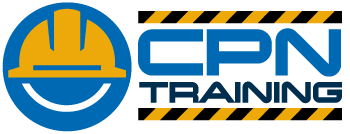Operating heavy machinery is a task that comes with significant responsibility and inherent risks. Whether it’s a construction site, a warehouse, or an industrial setting, the potential for accidents is ever-present.
Adhering to safety protocols is not just a legal requirement but a moral obligation to ensure the well-being of everyone on-site. With the right knowledge and precautions, many of the common risks associated with heavy machinery can be effectively mitigated.
Safety isn’t just about preventing accidents; it’s about fostering a culture where everyone feels responsible for maintaining a safe working environment.
By focusing on proper training, regular equipment checks, environmental awareness, the use of personal protective equipment (PPE), and strict adherence to manufacturer guidelines, operators can significantly reduce the chances of accidents occurring. These five tips are crucial for anyone involved in the operation of heavy machinery.

Proper Training and Certification
The foundation of safe machinery operation is proper training and certification. It’s imperative that all operators receive comprehensive training that covers not only how to operate the machinery but also the safety procedures that must be followed.
Certification ensures that the operator has met the necessary standards of competence and is legally authorised to handle the machinery.
Regular refresher courses are also essential, as they help operators stay updated on the latest safety practices and regulations.
Training doesn’t just stop at initial certification. Continuous education and hands-on practice are crucial for maintaining a high level of skill and awareness.
This ongoing process ensures that operators can handle any situation that arises, reducing the likelihood of accidents caused by human error.
Moreover, companies should encourage an environment where operators feel comfortable asking for additional training whenever they encounter new or unfamiliar machinery.
Conduct Pre-Operational Checks
Before operating any heavy machinery, it is crucial to perform a thorough pre-operational check. This involves inspecting the machinery for any signs of wear and tear, ensuring that all components are functioning correctly, and confirming that safety devices are in place.
Key areas to check include the brakes, lights, fluid levels, and any attachments or tools that the machinery may use.
Identifying potential issues before they become problems can prevent accidents and reduce downtime.
Pre-operational checks are not just about ticking boxes; they are a critical part of maintaining a safe work environment.
Regular checks help to identify issues that might not be immediately obvious, such as hydraulic leaks or loose components, which could lead to catastrophic failures if left unattended.
By integrating these checks into the daily routine, operators can ensure that the machinery remains in optimal condition, thereby safeguarding both their own safety and that of their colleagues.
Understand the Surroundings
Awareness of your surroundings is vital when operating heavy machinery. This includes understanding the layout of the work area, identifying potential hazards, and being aware of the presence and movements of other workers.
Operators should also be familiar with the safety protocols in place for their specific environment, including the use of signals and communication devices.
Clear and effective communication with other team members is essential to prevent accidents and ensure smooth operations.
In complex work environments, distractions and unforeseen obstacles can lead to dangerous situations.
Therefore, operators need to maintain constant vigilance and be prepared to stop or alter their actions at a moment’s notice.
This heightened awareness not only helps in avoiding accidents but also in identifying potential hazards before they escalate. Encouraging a proactive approach to safety can significantly reduce the risks associated with operating heavy machinery.
Use Personal Protective Equipment (PPE)
Personal Protective Equipment (PPE) is a critical line of defence for operators of heavy machinery.
Proper use of PPE, such as helmets, gloves, safety goggles, and steel-toe boots, can significantly reduce the risk of injury in the event of an accident.
It’s essential that operators wear the appropriate PPE for the specific machinery they are using and that this equipment is well-maintained and regularly inspected for signs of wear and tear.
Wearing PPE should be second nature to all operators, and companies should enforce strict policies to ensure compliance. However, PPE is only effective when used correctly and consistently.
Operators must be trained in the proper use and limitations of their protective gear, understanding that while PPE can reduce the severity of injuries, it does not eliminate the need for other safety measures.
Ensuring that PPE is used in conjunction with other safety protocols creates a more comprehensive approach to preventing accidents.

Adhere to Manufacturer Guidelines
Manufacturer guidelines are there for a reason—they are developed to ensure the machinery is used safely and effectively.
Operators should familiarise themselves with these guidelines and follow them strictly.
This includes understanding the machine’s limitations, operating procedures, and maintenance schedules.
Ignoring these guidelines not only puts the operator at risk but can also lead to equipment failure, which can have severe consequences.
Following manufacturer guidelines also involves understanding the specific requirements for different types of machinery.
Each machine has unique characteristics and potential hazards, so it’s crucial that operators respect these differences.
By adhering to the manufacturer’s recommendations, operators can ensure they are using the machinery as intended, reducing the likelihood of accidents and prolonging the life of the equipment.
Conclusion
Safety in the operation of heavy machinery is non-negotiable.
By following these five essential tips—ensuring proper training, conducting pre-operational checks, maintaining situational awareness, using PPE, and adhering to manufacturer guidelines—operators can significantly reduce the risk of accidents and create a safer working environment.
These practices not only protect the operator but also everyone on-site, fostering a culture of safety and responsibility.
In conclusion, while operating heavy machinery comes with its risks, those risks can be effectively managed through a commitment to safety and continuous education.
Companies and operators alike must prioritise safety protocols, ensuring that everyone goes home safe at the end of the day.
Through diligence and adherence to these guidelines, the workplace can remain both productive and safe.












